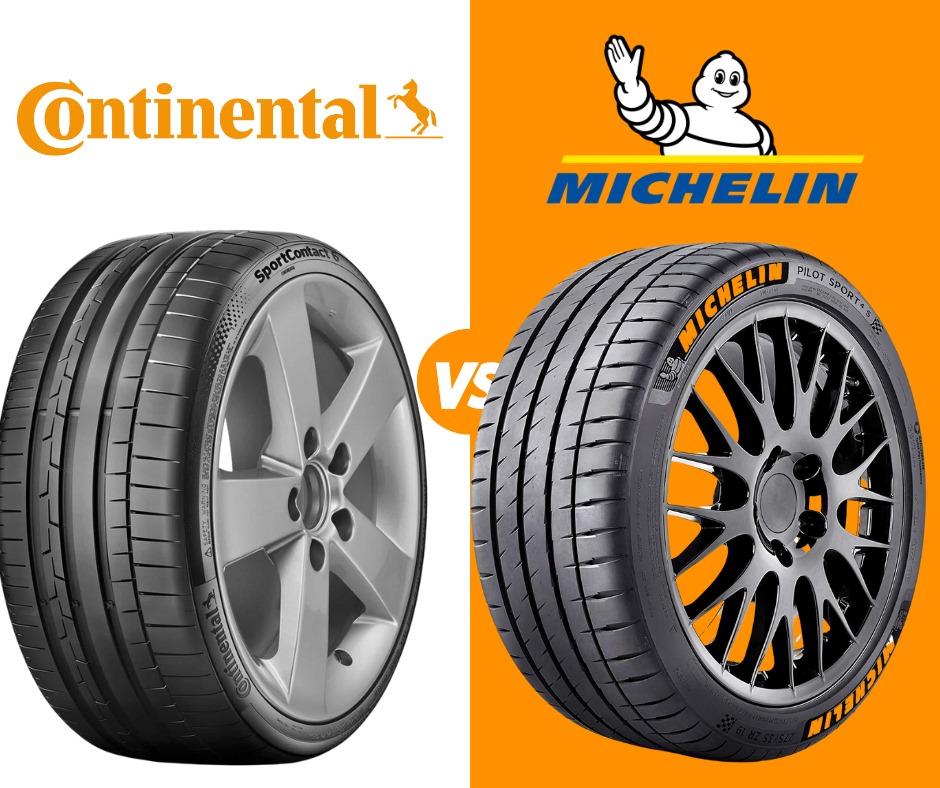Continental versus Michelin tires, pros and cons of each

Discover which tire brand leads the road in performance, safety, and durability: Continental or Michelin?
Overview of Continental and Michelin Tire Brands
Continental and Michelin are two of the most prominent tire manufacturers in the world. Continental, originating from Germany, has established a reputation for producing high-quality tires that offer exceptional handling and performance, particularly in wet conditions. They have a wide range of products that cater to various vehicles, including passenger cars, trucks, and motorcycles. On the other hand, Michelin, a French company, is renowned for its innovative technology and commitment to tire safety and longevity. Their tires are known for their superior grip, fuel efficiency, and performance across diverse driving conditions.
Choosing between these two tire giants can be challenging, as both brands have their unique strengths and loyal customer bases. In this comparison, we'll explore the pros and cons of Continental and Michelin tires to help you make an informed decision based on your specific driving needs.
Performance and Handling: Comparing Continental with Michelin
When it comes to performance and handling, both Continental and Michelin offer tires that are designed to excel in a variety of driving conditions. Continental tires often receive high marks for their responsive handling, particularly in wet and winter conditions, thanks to their advanced tread patterns and rubber compounds. Michelin tires, however, are frequently praised for their all-around performance, providing a balance of comfort, handling, and stability on both dry and wet roads.
Michelin's flagship performance tires, like the Pilot Sport series, are highly regarded in the automotive community for their exceptional grip and cornering capabilities. Continental's equivalent, the SportContact series, competes closely, emphasizing precision and response. Ultimately, the choice between the two will depend on the specific handling characteristics you prioritize and the types of roads you typically encounter.
Durability and Longevity: Which Tires Last Longer?
Durability and longevity are crucial factors to consider when choosing a tire brand. Michelin is often associated with longevity, with many of their tire lines, such as the Defender series, offering impressive tread life warranties and excellent wear characteristics. Continental tires are also built to last, but their focus on performance can sometimes lead to a compromise in tread life compared to some Michelin models.
However, both brands invest heavily in tire durability research, and advancements in tire technology continually improve the lifespan of their products. It's essential to consider your driving habits, as aggressive driving or frequent driving on rough roads can significantly affect tire wear regardless of the brand.
Tire Technology Innovations: Continental vs. Michelin
Innovation is at the heart of both Continental and Michelin's approach to tire manufacturing. Continental's ContiSeal and ContiSilent technologies are examples of their commitment to enhancing tire safety and comfort. ContiSeal technology is designed to seal punctures in the tread area, while ContiSilent aims to reduce interior noise caused by the tires.
Michelin, on the other hand, has introduced several groundbreaking technologies, such as the Michelin Premier A/S tires with EverGrip technology, which maintains high levels of traction even as the tire wears down. Additionally, Michelin's CrossClimate range showcases their prowess in developing tires that adapt to various weather conditions, offering drivers peace of mind throughout the year.
Price and Value: Evaluating Cost-Effectiveness for Each Brand
The price of tires can vary widely depending on the model and the specific requirements of your vehicle. Generally, Michelin tires tend to be priced at a premium due to their brand reputation and the advanced technologies they incorporate. Continental tires can also command a high price, but they often provide competitive options that balance cost and performance.
When evaluating the cost-effectiveness of each brand, it's important to consider the total value provided over the tire's lifespan, including factors such as fuel economy, safety features, and the potential for reduced wear. Both Continental and Michelin offer tire warranties and satisfaction guarantees, which can add significant value to your purchase and should be factored into your decision-making process.
Drop us a message from our facebook page or Chat us using the widget on the right to order TIRES for your car

 Loading..
Loading..